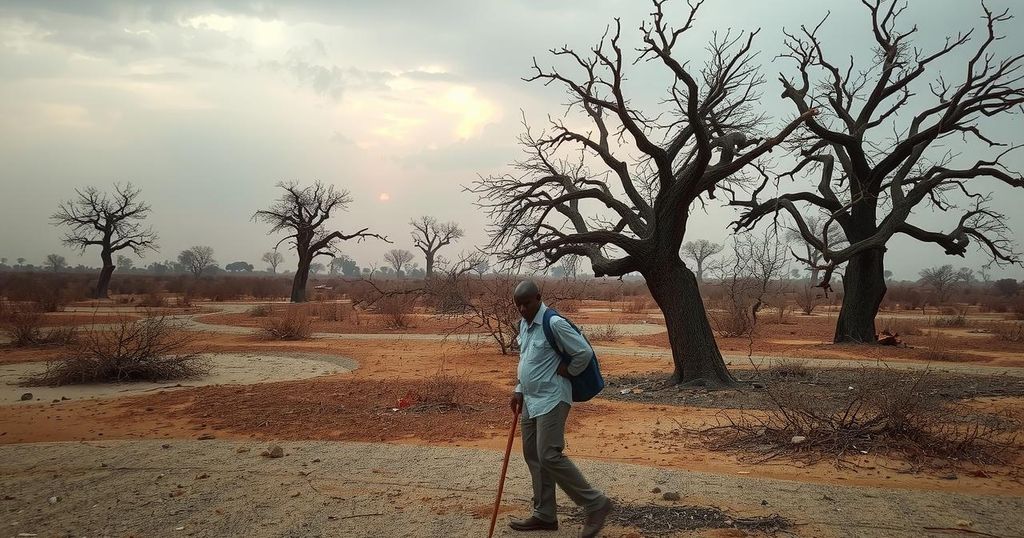UN Warns South Sudan is on the Brink of Conflict Amid Escalating Turmoil
The UN warns that South Sudan is on the brink of renewed conflict amid escalating violence and political turmoil. Tensions rise between President Salva Kiir and Vice President Riek Machar, exacerbated by militia clashes and regional instability related to the ongoing war in neighboring Sudan. With humanitarian crises worsening, the potential for widespread conflict remains a significant concern.
The United Nations has issued a stark warning that South Sudan, the world’s youngest country, faces the imminent threat of renewed conflict as political stability deteriorates and violence escalates. Following independence from Sudan in 2011, South Sudan has faced ongoing strife, including a civil war shortly after its establishment. Governmental tensions are rising, marked by a precarious power-sharing agreement and evacuations of non-essential U.S. personnel as a response to increasing militia activity.
The conflict stems from rising tensions between President Salva Kiir and Vice President Riek Machar, whose previous alliance is now strained. Following dismissals of Machar loyalists from the Cabinet, government forces have surrounded Machar’s residence and detained key figures from his faction. Recent clashes between government troops and the White Army, a militant group linked to Machar’s Nuer ethnic group, have further exacerbated the volatile situation, including the recent overrun of a military encampment and hostilities that resulted in the death of UN personnel and Sudanese military members.
The UN has dispatched around 20,000 peacekeepers to stabilize the region, but reports indicate that South Sudan may succumb to further conflict, negating years of peacekeeping efforts. The UN Commission on Human Rights has expressed concern over a deepening humanitarian crisis, highlighting that food insecurity affects half of the population, while millions remain displaced internally and externally. Additionally, a recent cholera outbreak, reported by Doctors Without Borders, poses further challenges to the fragile state.
Uganda’s involvement in the crisis has escalated tensions, as Ugandan troops were deployed to support President Kiir, sparking backlash from opposition parties. Machar’s faction has since begun retracting elements of the 2018 peace agreement, signaling increased instability in the region.
The conflict is compounded by neighboring Sudan’s turmoil, which may draw South Sudan deeper into regional conflict. Alan Boswell from the International Crisis Group emphasizes that potential connections between Sudan’s and South Sudan’s conflicts could result in larger-scale violence, given South Sudan’s economic reliance on oil exports from the north. The precarious balance maintained by President Kiir is becoming increasingly difficult as external pressures mount, leading to fears of a potential large-scale war in the Horn of Africa.
In conclusion, South Sudan finds itself at a critical juncture, facing the severe repercussions of internal strife and external influences that threaten to rekindle civil conflict. The tenuous political alliances and rising violence underscore the urgent need for renewed diplomatic engagement and humanitarian support. As the situation unfolds, the international community must closely monitor developments to prevent a return to widespread warfare in this fragile nation.
Original Source: www.northcountrypublicradio.org




Post Comment